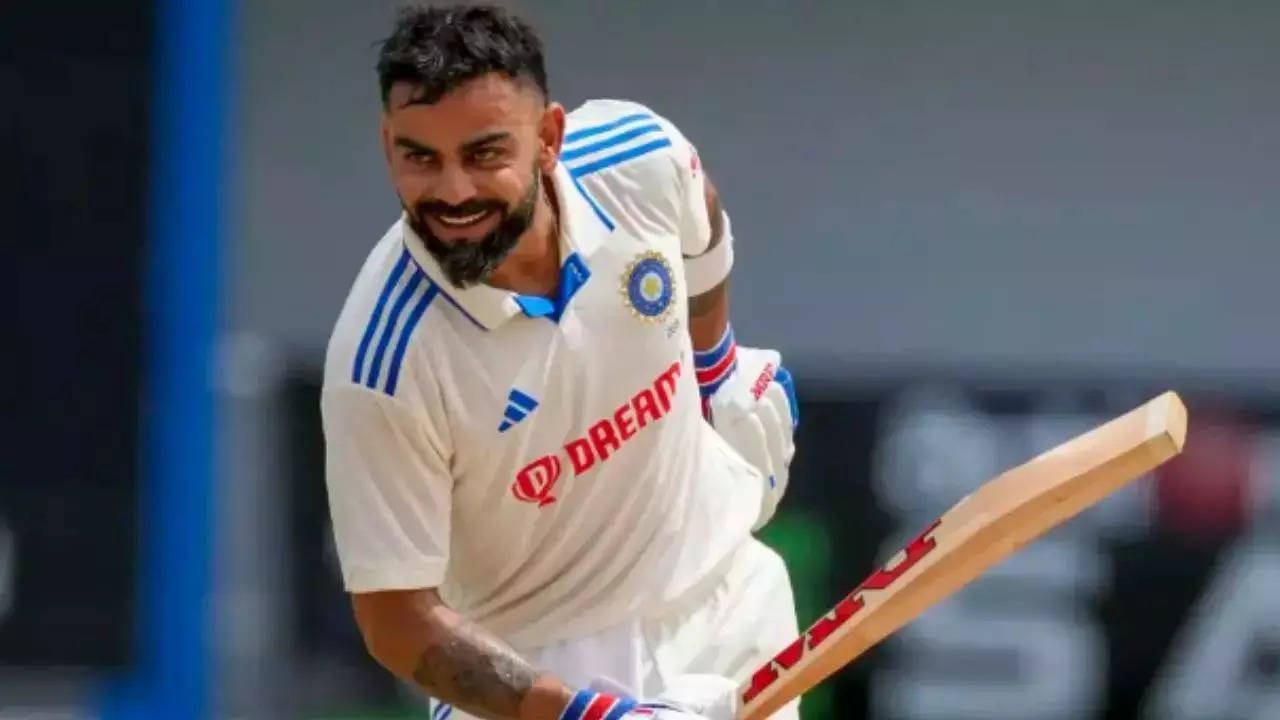In the demanding arena of Test cricket , where perseverance, skill, and mental toughness are paramount, scoring a double century is a notable milestone. Among active players, a select few have reached this achievement multiple times, carving their place in cricket history . Leading the group is Virat Kohli , with 7 double centuries , followed by Joe Root and Kane Williamson , each with 6, and Steve Smith with 4. This article explores what these numbers represent and how these players have influenced the game.
Virat Kohli: The Dominant Force of Modern Batting
Virat Kohli’s 7 double centuries reflect more than just a number; they signify his growth as a world-class batsman. Kohli’s ability to score double centuries against some of the toughest bowling attacks showcases his dominance and endurance over long innings. His batting combines aggression with precision, often putting his opponents under pressure. Kohli’s double hundreds are not just high-scoring innings but also game-changing performances that leave a lasting impact.
Joe Root: The Backbone of English Cricket
Joe Root’s 6 double centuries are a testament to his role as a cornerstone of English cricket. Root’s ability to craft long, patient innings, even in challenging conditions, sets him apart. His adaptability, whether against seamers in England or spinners in Asia, shows his versatility. These double centuries have played a crucial role in key series for England, demonstrating his leadership and ability to anchor the team.
Kane Williamson: The Precision Master
With 6 double hundreds, Kane Williamson is renowned for his methodical approach to batting. While he may not display the flamboyance of Kohli or the steady run-making of Root, Williamson’s innings are often perfect examples of timing, placement, and patience. His double centuries are built on a solid technique and calmness, making him a dependable player for New Zealand when they need stability at the crease.
Steve Smith: The Genius with Unorthodox Style
Steve Smith may have 4 double centuries, fewer than his contemporaries, but his unique batting style makes each of those innings special. Smith’s unorthodox technique, sharp cricketing mind, and ability to innovate on the pitch make his double centuries noteworthy. His ability to score in unusual ways adds a layer of complexity to his achievements, often helping Australia in decisive match moments.
The Value of a Double Century in Test Cricket
Achieving a double century in Test cricket is more than a personal accomplishment; it’s a crucial element in team strategy and long-term match situations. These milestones, achieved by Kohli, Root, Williamson, and Smith, highlight their ability to play marathon innings—an increasingly rare skill in the age of limited-overs cricket.
Their double centuries often change the direction of matches or series, creating significant moments in cricket history. These performances not only contribute to individual records but have shaped series outcomes and influenced team rankings, solidifying their place in the sport’s rich history.
Virat Kohli: The Dominant Force of Modern Batting
Virat Kohli’s 7 double centuries reflect more than just a number; they signify his growth as a world-class batsman. Kohli’s ability to score double centuries against some of the toughest bowling attacks showcases his dominance and endurance over long innings. His batting combines aggression with precision, often putting his opponents under pressure. Kohli’s double hundreds are not just high-scoring innings but also game-changing performances that leave a lasting impact.
Joe Root: The Backbone of English Cricket
Joe Root’s 6 double centuries are a testament to his role as a cornerstone of English cricket. Root’s ability to craft long, patient innings, even in challenging conditions, sets him apart. His adaptability, whether against seamers in England or spinners in Asia, shows his versatility. These double centuries have played a crucial role in key series for England, demonstrating his leadership and ability to anchor the team.
Kane Williamson: The Precision Master
With 6 double hundreds, Kane Williamson is renowned for his methodical approach to batting. While he may not display the flamboyance of Kohli or the steady run-making of Root, Williamson’s innings are often perfect examples of timing, placement, and patience. His double centuries are built on a solid technique and calmness, making him a dependable player for New Zealand when they need stability at the crease.
Steve Smith: The Genius with Unorthodox Style
Steve Smith may have 4 double centuries, fewer than his contemporaries, but his unique batting style makes each of those innings special. Smith’s unorthodox technique, sharp cricketing mind, and ability to innovate on the pitch make his double centuries noteworthy. His ability to score in unusual ways adds a layer of complexity to his achievements, often helping Australia in decisive match moments.
The Value of a Double Century in Test Cricket
Achieving a double century in Test cricket is more than a personal accomplishment; it’s a crucial element in team strategy and long-term match situations. These milestones, achieved by Kohli, Root, Williamson, and Smith, highlight their ability to play marathon innings—an increasingly rare skill in the age of limited-overs cricket.
Their double centuries often change the direction of matches or series, creating significant moments in cricket history. These performances not only contribute to individual records but have shaped series outcomes and influenced team rankings, solidifying their place in the sport’s rich history.
You may also like

After Minahil Malik, another Pakistani TikTok star Imsha Rehman's X-rated video goes viral; here's how she reacted

COP29 gets momentum with consensus on creation of carbon credits standards, India wants to conclude work on carbon market

Jharkhand Assembly polls: Governor Gangwar casts vote, appeals to voters to come out in large numbers

Divorce rage sparks driver to kill over 35 in China's deadliest attack of the decade

"Congress has always worked for dividing the country": Union Minister Gajendra Singh Shekhawat







